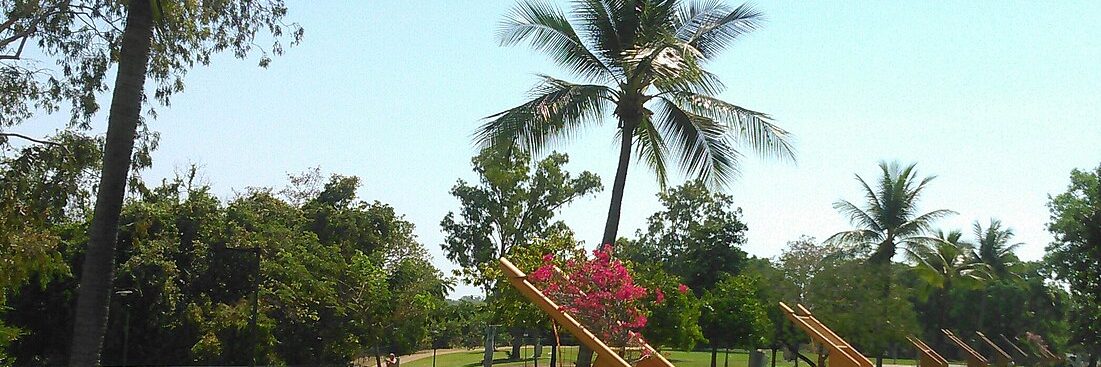A park in Darwin, Northern Territory. Source: Lance Vanlewen, Wikimedia Commons
Private security guards, who are being paid millions of dollars by the Northern Territory government to patrol the streets of Darwin, have been unlawfully moving homeless people on in their sleep.
The guards come from a company called Territory Protective Services (TPS), and often wake sleeping homeless people in the early hours, according to Rosemary Timber, who sleeps rough when experiencing problems in her home.
“I’ve experienced that a few times,” Timber said.
Documents obtained by the ABC show that back in 2019, the Darwin City Council rejected a request by former NT chief minister Michael Gunner to authorise private security guards to operate under the territory’s Local Government Act.
The documents show that the council sought legal advice over the request by Gunner, which found there was a “reputational risk”.
The council then decided to allow the government’s private security guards to operate on council land, but that was as far as it went.
“Council is not willing to appoint security guards as authorised persons under the local government act,” the documents state.
The documents show that in 2020, across five months, there were 2,517 occasions where security guards moved on rough sleepers.
While the security guards are acting like police, according to Darwin’s Lord Mayor Kon Vatskalis, they don’t actually have this power.
“They don’t administer any by-laws,” Vatskalis stated.
“They can’t, legally; the only thing they do is they detect a problem.”
Because the private security guards are not employed by the state, they are not properly held accountable for their actions.
Four Corners showed footage on Monday of NT private security guards violently attacking homeless people, including punching a woman and dragging an elderly woman on the ground.
The NT has the highest rate of homelessness in the country, at 12 times the national average rate of homelessness.
Aboriginal people are disproportionately represented in this figure, making up 87 per cent of the NTs homeless population, and over half of them are Aboriginal women.





